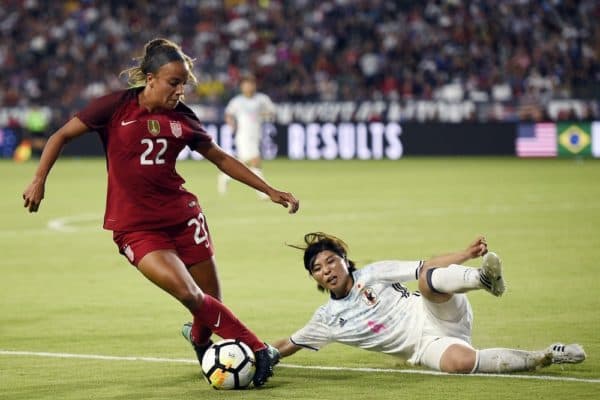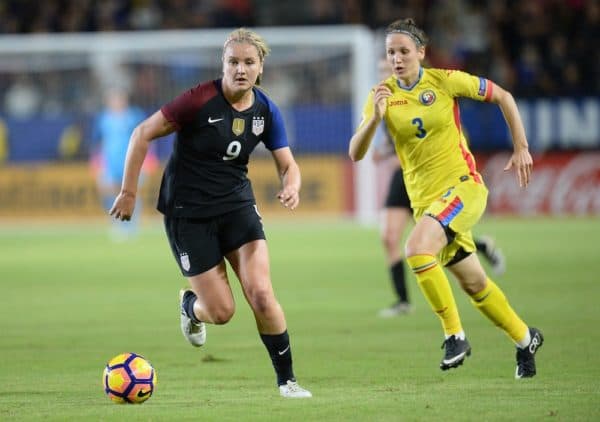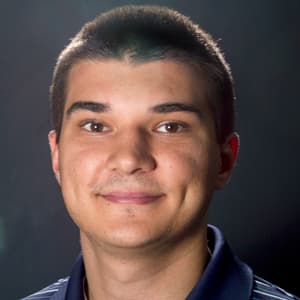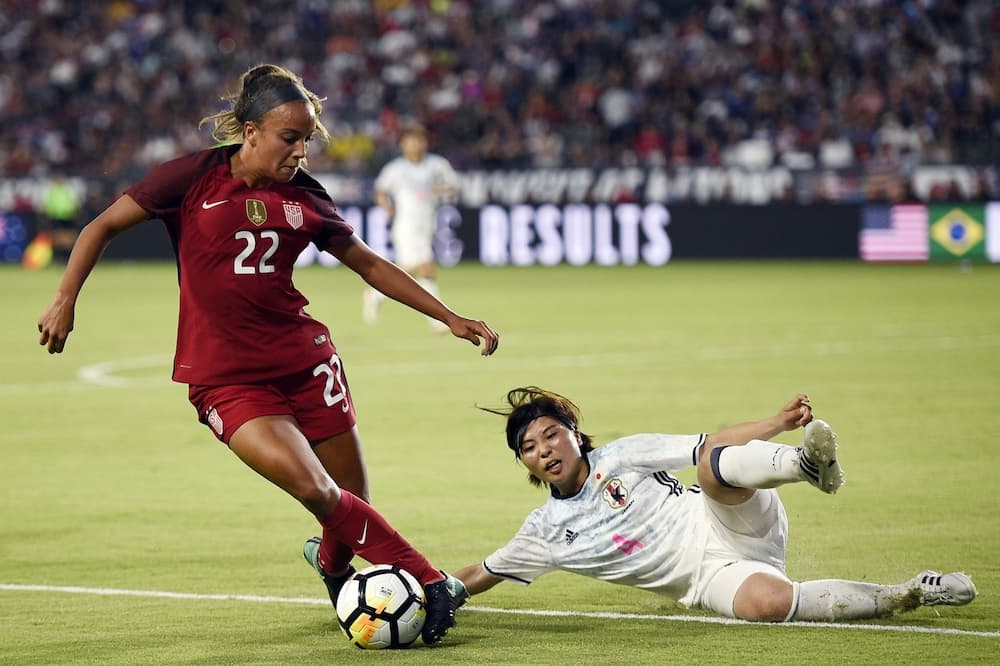
Mallory Pugh had a difficult decision to make this spring: Get some semblance of the college experience or jump feet-first into adulthood?
Pugh, still a few weeks away from turning 19 at the time, was a freshman on scholarship at UCLA. She'd yet to play a game for the Bruins, but after a summer of representing her country as a member of the U.S. women's national team at the Olympics, she began kicking around the idea of going pro.
Pugh talked about foregoing college with her family. She also spoke with a fellow Coloradan who was familiar with her predicament: Golden's Lindsey Horan. In 2012, Horan decided to give up her scholarship at the University of North Carolina in order to sign a six-figure contract with the French club Paris Saint-German.
In April, Pugh made it official: She was leaving UCLA without ever playing a game there. Pugh wound up signing with the Washington Spirit of the National Women's Soccer League.
On Tuesday, Pugh and Horan were back in Colorado. They returned to their home state as members of the U.S. women's national team, which will face New Zealand tonight at Dick's Sporting Goods Park in a friendly, but also as trailblazers for American women who make the preps-to-pros jump in soccer.
No American women's soccer player had ever jumped straight from high school to the pros before Horan did it in 2012. Five years later, Pugh followed in her footsteps by leaving UCLA before her college career ever really got going.
"Mal and I had multiple conversations about it," said Horan, who in January 2016 left PSG to sign with the NWSL Portland Thorns. "It’s such a difficult conversation to even have to bypass college and lose that scholarship. I told her deep down it’s your decision. And it really isn't for everyone. You’ve got to go deep down in your heart and do what’s best for you, and she did."
Pugh said she knew this spring, "it was the right time for me."
The Highlands Ranch native, who last summer became the youngest USWNT player ever to record an Olympic goal, knew she wanted to compete at the highest level.
Making the jump also meant that she'd be be able to profit off of herself. Women who are under contract with the U.S. Soccer Federation earn about $200,000 annually to play for both the national team and their NWSL teams. (Non-national NWSL players earn anywhere between $15,000-$41,700.) And in May, Pugh signed an endorsement deal with Nike.
Despite the contract and the sportswear sponsorship, Pugh insists her decision had little to do with money.
"I don’t think much of it was that," she said. "I think for me it was what can I do to put myself in a good environment to grow as a player and a person?"
Playing in Washington, Pugh said, has helped her do that. She's learning what it means to be an adult.
"It’s a struggle, I can say," she said. "I’m like, 'Uhhh, I have to do this. I have to do that. But it’s fine.'"

Horan considers Pugh a "little sister." In some ways — such as the paths each took to become a pro — they're similar. In other ways, they're opposites.
"For me, Mal is just someone that doesn’t think a lot," Horan said. "Coming from my past experiences, I’m a player who would worry all the time. I would get so nervous and frantic when I was young. And my God, she comes into her first national team game and scores. I don't see nerves at all. She’s just going out and having fun and playing."
Said Pugh: "I think as a person I don’t really think too much. I don’t really know if that’s good or bad."
Horan and Pugh might go about playing the game they love in different ways. But both have helped lay the preps-to-pros blueprint for other American women to follow.
"Now it’s kind of out there," Horan said. "Other young players who may be thinking about it can see that other young players have thought about it. And Mal's done so well, and I’m so happy where I am. They can see that we’re in a good place as of now. I think it’s cool that any youth player can say, 'Oh, there’s different ways we can go. And college isn’t just the right thing to do.' It’s not for everyone. It’s so difficult. But it’s cool that it’s available and it’s an option."
Subscribe to Denverite’s weekly sports newsletter here.













